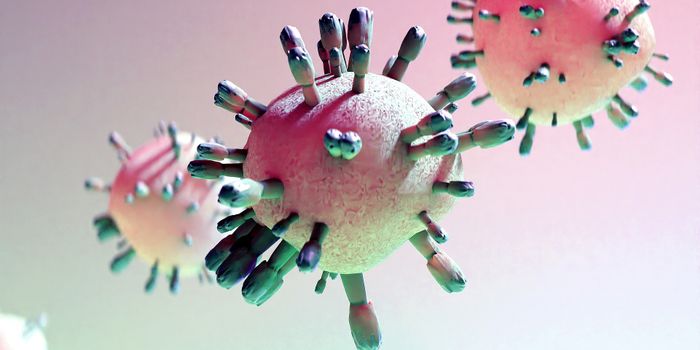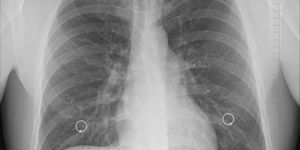Mast Cells Facilitate Metastasis in HR+ Breast Cancer
The gut microbiome describes the microorganisms and viruses that live throughout the digestive system. The gut microbiome can impact human health and affect the efficacy of specific therapeutics, including some used to treat cancer.
When the gut microbiome becomes inflamed and the number of bacterial species decreases, a condition known as commensal dysbiosis occurs. The onset of dysbiosis before developing breast cancer promotes early dissemination of hormone-positive (HR+) breast cancer. HR+ breast cancers contain tumor cells that express estrogen and/or progesterone receptors, and this subtype represents over 70% of the metastatic breast cancer cases in the United States. Effective treatments for HR+ breast result in long-term survival for a high proportion of patients; however, predicting which patients may experience recurrence, the re-emergence of cancer after successfully eliminating the disease, remains challenging.
A research team seeking to understand the mechanisms underlying commensal dysbiosis-driven regulation of HR+ tumor dissemination recently published their findings in Cancer Immunology Research. This study highlights an essential role for mast cells, a subset of innate immune cells found in the skin and connective tissues known to respond to bacterial and parasitic infections.
The researchers treated laboratory mice with antibiotics to kill bacteria in the gut microbiome thus inducing commensal dysbiosis. Using two techniques, flow cytometry and histological staining, the study demonstrated that healthy mice and those with mammary tumors both exhibited increased mast cell numbers following commensal dysbiosis.
To demonstrate the ability of dysbiosis-driven mast cells to influence the dissemination of HR+ tumor cells, the researchers first tested a pharmacological approach. The team administered mast cell stabilizers, ketotifen fumarate (used to treat asthma) and cromolyn (used to treat allergies), to mice with mammary cancer. These treatments reduced dysbiosis-driven tumor dissemination to the lungs, a common location of breast cancer metastasis.
In an adoptive transfer approach, the research team transferred mast cells obtained from dysbiotic and non-dysbiotic mice into mast cell-deficient mice, called Sash mice. Both dysbiotic- and non-dysbiotic-derived mast cells engrafted to the mammary tissue of the recipient Sash mice. However, Sash recipients receiving mast cells from dysbiotic mice exhibited significantly more dissemination of tumor cells in the blood and lymph nodes than those receiving mast cells from non-dysbiotic mice.
To evaluate the clinical relevance of mast cells in patients with HR+ breast cancer, the researchers assessed tissue from 14 patients. Mast cell numbers correlated to collagen deposits in tissue adjacent to the breast. To determine if collagen is related to metastasis, the researchers compared tissue from 18 HR+ patients who did not experience recurrence to that from 23 HR+ patients who recurred. While not statistically significant, they found a correlation between mast cells and collagen expression in tissues for patients who had a recurrence. This finding suggests that collagen expression could provide an important tool to predict mast cell presence in HR+ breast cancer patients.
The authors conclude their data demonstrates that mast cells programmed by commensal dysbiosis promote early dissemination of HR+ breast cancer. The ability to accurately identify patients likely to recur will allow doctors to enhance the monitoring of these patients. Early detection of recurrent cancer will increase the ability to provide effective treatment and further improve survivorship.
Sources: Gut, Cell Microbiol, Cancer Res, Sci Rep, Br J Cancer, Cancer Immunol Res, Cancer Biol Ther, Am J Pathol









